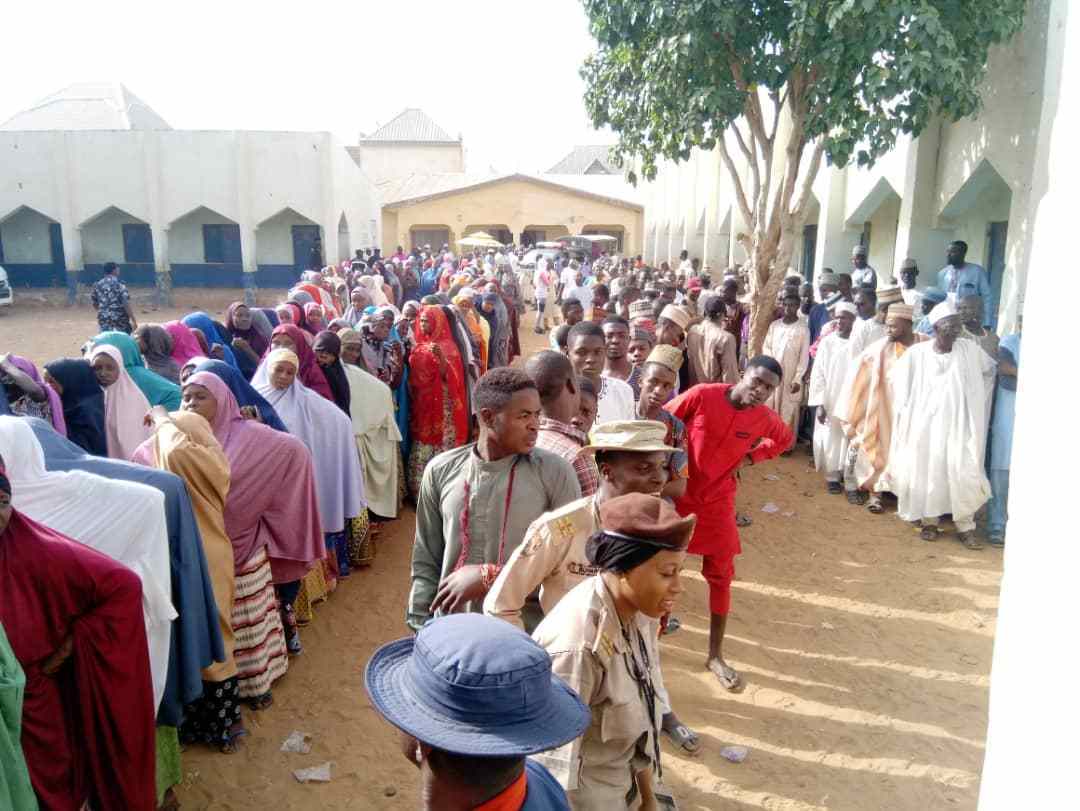
The Centre for Democracy and Development, a non-governmental organisation which deployed observers to monitor Saturday’s supplementary elections, has released its preliminary report which painted troublesome details of how the exercise turned out in some parts of the country.
Sokoto, Plateau, Kano, Bauchi and Benue were the five states where supplementary poll held to determine governorship positions, while voters turned out in other states like Lagos, Imo and the Federal Capital Territory to determine local assembly seats.
The nationwide observations of the CDD, which were processed and analysed at its election analysis centre in Abuja, showed that violence by security agents and political thugs against voters, journalists and observers was widespread in some states, especially Kano.
There were reports of late arrival of voting material and officials to some centres, although these were not widespread. In Sokoto, observers noted that some voters were induced with as much as N15,000 to vote for a candidate, and this malpractice was linked to major political parties, who were not immediately named in the preliminary findings.
Read the initial findings of CDD in full as follows:
The Centre for Democracy and Development’s (CDD) Election Analysis Centre (EAC) deployed trained observers to the five States (Bauchi, Benue, Kano, Plateau and Sokoto States) where the supplementary governorship elections held, today, March 23, 2019.
The observers were tasked to observe and report on the polling process, including opening times, accreditation and voting, the collation processes, as well as the level of compliance of INEC ad-hoc staff, voters, security operatives, politicians and their supporters, and other stakeholders to the 2019 INEC electoral guidelines and regulations, extant electoral laws and international standard for conduct of credible elections.
The CDD-EAC comprises of leading experts on elections and democracy. The experts reconvened to provide a rigorous analysis of the processes of the supplementary elections.
This preliminary report highlights our key findings from the observation.
Preamble
Our observers reported that on the average, accreditation and voting processes commenced in earnest between 8:00 – 8:30 a.m. in the majority of polling units across the five states. However, in some polling units, there was a late arrival and commencement of votes. For instance, polling started at 10:00 a.m. in some units in Kano State.
In Karaye Ward and LGA, Magajin Gan polling unit 011 for example, electoral materials had not arrived by 10:02 a.m. In Benue’s Konshisha Ward, PU 005, polling materials arrived at 9:08 a.m.
The supplementary election was greeted with an impressive turn out of voters particularly in Sokoto, Bauchi, Plateau and Kano. The high number of people coupled with the crowd gathered at the voting areas, and poor voting logistics (space) itself constituted challenges in the election.
For instance, in PU 012, Ward 11, Sokoto South LGA, where the total registered voters are 585, the electoral officials battled to organise the queue within the narrow space provided for the polling. A similar situation was recorded in polling unit 009, Magaji Gari B. In Plateau’s Jos North LGA, and in PU 014, Jenta Mangoro Ward 006, with a total of 2,017 registered voters.
It is crucial that INEC assiduously work in subsequent elections to ensure facilities utilised for polling are adequate to prevent unnecessary tension. We commend the turn out of women and persons with disabilities and all Nigerian citizens who troop out en masse to vote in the elections.
The bright spot for us in these elections is the voters in Kagadama Polling units in Bauchi, who activated their citizens power, maintained law and order and ensured that politicians who tried to skew the process were not just prevented but peacefully escorted out of the polling units.
Violent Disruption of Election
Our observers reported incidents of violence and disruption of the voting process in Kano, Sokoto, Benue and Bauchi States where supplementary governorship and state houses of assembly elections held.
In Kano State, violence and disruption of polling were widespread as an army of thugs reportedly took over polling activities in several local government areas (LGAs), including Nasarawa, Dala, Karaye and Gaya. In PU 011, Kwanyawaward and PU 002, Chede ward, both in Karaye LGA; and PU 001 and PU 034-036, Gama Ward of Nasarawa LGA.
It is distressing that political thugs took over the elections forcing voters to vote along a particular party line, stoning voters and violently disrupting the polls. As reported yesterday (Friday, March 22 2019) in our preliminary report, Gama ward in Nasarawa LGA in Kano State is very strategic to winning the supplementary elections by either of the two leading candidates.
We noted that the total number of registered voters (40,821) represents 31.8% of the 128,324 total registered voters in places where the rerun will be held.
In Sokoto State, particularly in Bodinga LGA, Bodinga Ward (PU11), a dispute which eventually disrupted the election erupted between the agents of the two leading parties over attempts by a party agent to assist voters in voting. Still, in Sokoto, our observers reported the actions of some APC and PDP party chieftains at Magajin Gari Ward ‘B’, Shiyyar Danfarijo, Polling Unit 005 and 009, Sokoto LGA, almost led to violence and halted polling for about three hours. Thankfully, the intervention of police led to return to normalcy.
Evidence suggests a deliberate deployment of political thugs in the election, to suppress voters, intimidate officials and skew the polls in favour of some political actors. The new weaponisation of thuggery is extremely disturbing and disappointing following twenty years of uninterrupted democracy in the country. CDD will also want to point out that the way thuggery was instrumentalised in the elections queries the essence of the massive deployment of security agents to guard the polls. In several instances, the security was reported to have turned a blind eye to the act of brigandage perpetrated by these political thugs.
Attack, harassment and Intimidation of INEC ad-hoc official, voters and journalist
This electoral cycle has witnessed so much intimidation, harassment and attack on voters, journalists, observers and INEC officials. This unfortunate development, however, took an unprecedented turn in the Kano supplementary elections where party agents and thugs intimidated and attacked voters and observers in the course of exercising their franchise or
monitoring the process.
A CDD Observer in Gama LGA, Gwagwarwa 5 centre, Polling Unit 010 A & B, Kano State, with 756 registered voters was harassed by a mammoth crowd when he tried to take pictures of the voting process. In Gama LGA, Kofar Mazugal, Masaka Primary School, Polling Unit 051 with 752 registered voters, stones were thrown at our observers to prevent them from observing the polling processes.
Our observers reported large crowds but crowds with badges identifying them as party agents. However, the APC party agents were in large numbers compared to few PDP agents across Kano State. The huge disequilibrium in terms of the relative amounts of agents could present a risk factor to the voting process.
There are clear instances of where party agents and thugs coerced and intimidated voters into voting for their candidates. In PU 034, Gama ward of Nasarawa LGA for example, we received a report that party agents were campaigning and dissuading voters from voting for candidates of their choice. In PU 006 in the same ward, we also gathered that political thugs harassed domestic observers and prevented from performing their function.
The high level of intolerance against poll monitors was not limited to observers. We also confirmed the harassment of two journalists. In Minjibir LGA of Kano State, a journalist from the National Television Authority (NTA) was attacked, and his car was vandalised when covering the polling process. Similarly, we confirmed that political thugs harassed Television Continental (TVC) crew covering the elections.
Despite several attempts to entrench peacefully electoral democracy in Nigeria, elections have been marred by an upsurge of violence. We also received a report of an attack on INEC ad-hoc officials and party agents in Zaki Biam, Ukum LGA, Benue State. The level of impunity at which this gruesome act is being prosecuted by hoodlum at the ballot box and the inability of security agents to respond adequately and hold perpetrators accountable are sources of concern.
The intimidating presence of political party agents made polling units unsafe for voters and stakeholders alike. Our observers reported large crowds but crowds with badges identifying them as party agents. The huge disequilibrium in terms of the relative numbers of agents could present a risk factor to the voting process.
However, the situation was disproportionately treated, for instance in Gama Tudu Primary school Polling Unit 015 with 909 registered voters. There was a massive crowd outside the centre, again composed of APC party agents and hundreds of people standing around. In this school, there was a sufficient security cordon around the school, and only voters with PVC and party agents were allowed into the premises.
Destruction of Electoral Materials
The supplementary elections also witnessed the attack on electoral officials and the destruction of election materials. In Benue state, polling materials for the Azendeshi Ward were intercepted and burnt by political thugs, with election officials also injured.
Vote Trading
The CDD has continuously raised in all its briefings in the elections, the challenge of voter trading and how it impacts on the integrity of elections. Our observers reported across the states that the two major political parties are involved in trying to induce voters. For instance, in Sokoto vote-buying allegations are laid against the two dominant parties.
One ofthe voters s interviewed during the elections by our observer at the Katta Hakimii polling zone EC 30 B, Gidan Katta area of Illela in Sokoto State, allegedly vote was being procured for between N10, 000 and N15,000. According to the voter, before sliding your thumb printed paper into the ballot box, you will have to lift it for the agent to see and nod his head as a sign that you have fulfilled your part of the deal hence qualified for the payment.
There is a need to emphasise that the act of vote buying and selling is an offence punishable under the law. It is unfortunate that despite its routine occurrence, none of the culprits has ever been punished or faced the wrath of the law.
Under Age Voting
It is unfortunate that these elections have witnessed a high level of underage voting. Our observers reported underage voting in Plateau, Kano and Sokoto states.
Conclusion
The smart card readers and the welfare of ad-hoc staff continue to constitute challenges to the electoral process, INEC is yet to match her words with actions on prompt payment, and adequate welfare for her ad-hoc staff, the malfunctioning and deliberate none-usage of the smart card reader continues to hinder the smooth running of the elections.
We implore INEC to find a lasting solution to address the perennial card reader challenges and poor handling of the welfare of ad-hoc staff. It is also vital that there is a uniform application of rules on the none usage of the card reader.
The CDD is immensely worried about the quality of elections, in particular, the renewed thuggery and brigandage being visited on the polity by the political class. These shameful acts are not just capable of truncating our democracy but importantly eroding the trust of the citizenry in the democratic process itself.
The ongoing elections have again pointed out the need for a broader electoral accountability framework and in particular the political will to pursue accountability. It is time for Nigeria and her partners to put an end to electoral impunity if democracy must be preserved.
You may be interested

Premier League: Chelsea Overcome Leicester City Away
Webby - November 23, 2024Chelsea defeated Leicester City 2-1 in their Premier League clash at the King Power Stadium on Saturday.Nicolas Jackson gave Chelsea…
CAFCC: Olanrewaju Explains Enyimba’s Switch To Uyo Grass Pitch Ahead Al-Masry Clash
Webby - November 23, 2024Yemi Olanrewaju, Head Coach of Enyimba, has explained to Completesports.com the rationale behind the team’s relocation to the Godswill Akpabio…

Boniface Can Still Play This Year — Leverkusen Boss Alonso
Webby - November 23, 2024Bayer Leverkusen manager Xabi Alonso remains optimistic Victor Boniface will return to action for the club before the end of…


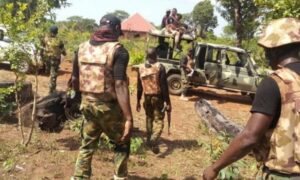

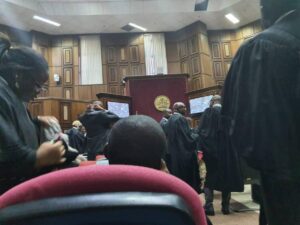
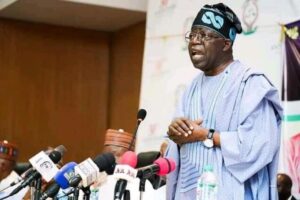





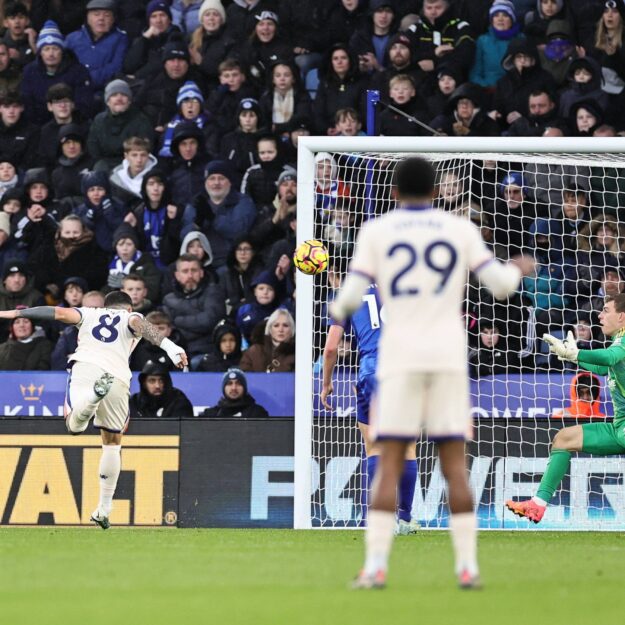



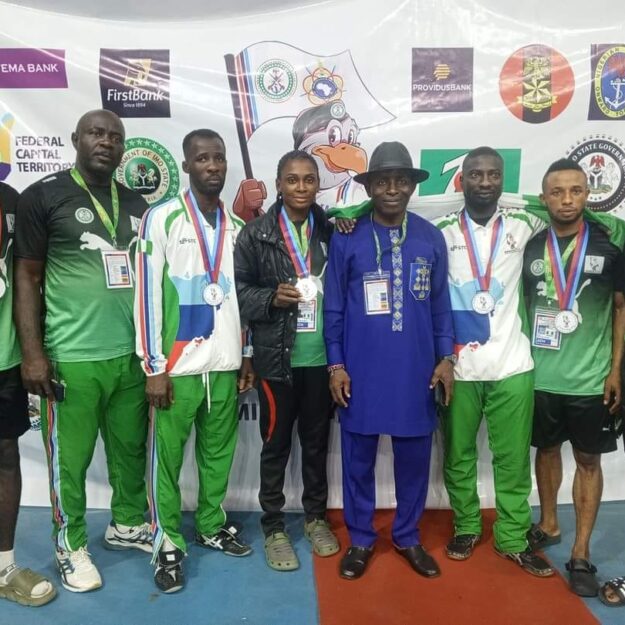





![American Pastor, David Wilson Seen Eating The Box Of Woman Who Isn’t His Wife [Video]](https://onlinenigeria.com/wp-content/uploads/2019/10/american-pastor-david-wilson-seen-eating-the-box-of-woman-who-isnt-his-wife-video-150x150.jpg)









